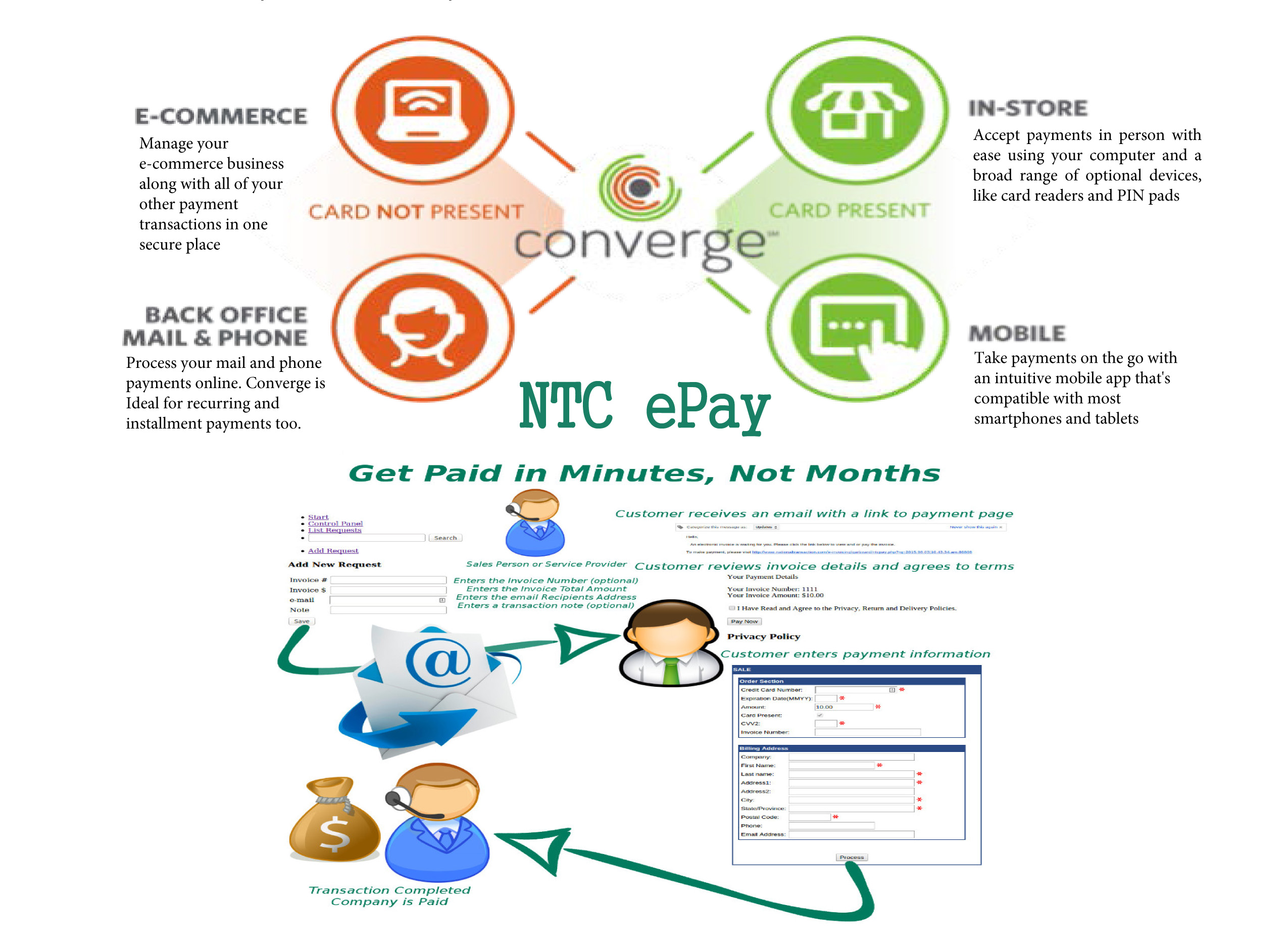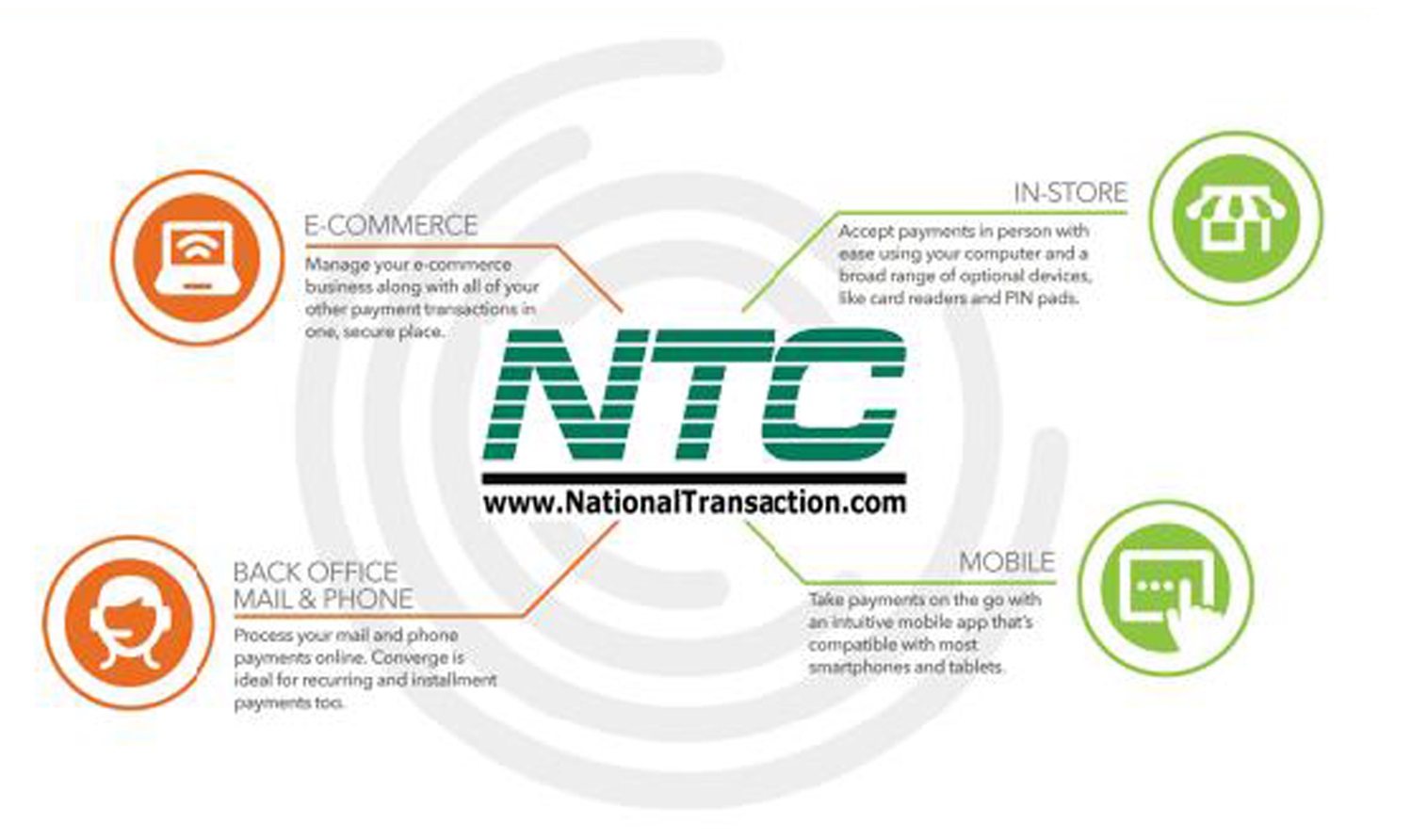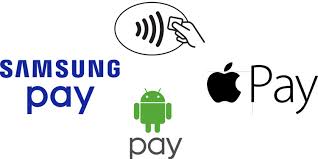Category: Mobile Point of Sale
August 30th, 2024 by Admin

According to a poll by OnePoll on behalf of I Love Velvet titled “Consumer Mobile Point-of-Sale (MPOS) Attitudes Report” over half of retail customers think cash registers are outdated. The poll found that 51% of Americans think the cash register could soon be gone altogether as retailers opt for mobile point of sale systems. Consumers seem to favor MPOS systems allowing the shoppers to check out from anywhere in the store and that they return more often to stores with modern electronic payment technologies. Thirty five percent cited they would shop more often at stores with mobile point of sale payment systems. An additional 17% said they would share their shopping experience via social networking sites and 35% report they likely would tell a friend or recommend stores with these technologies. Forty six percent say that stores that have mobile payment systems seem to be more tech savvy and even more (56%) praise the store for making the experience more convenient and secure. Retailers are struggling to modernize their payment platforms to cut down long lines at registers, and place staff on the floor for better customer access. “It’s a great opportunity for retail store owners to dip into the mobile point of sale arena” said Richard Delos Santos of National Transaction Corporation.
Mobile point-of-sale equipment and software manufacturers are stepping up to the security plate as they seek to pass PCI DSS and other security related issues. As new mobile kiosks and point of sale hardware and software evolve so do the security challenges used to thwart credit card fraud and identity theft. The challenge for point of sale system providers is to create an increasingly secure and convenient way for customers to make electronic payments in-store or on their mobile devices. iPads, iPhones and Android tablets are often used by curious shoppers to compare and contrast features, prices and availability, why not let digital wallets be used to close the transaction? The use and connectivity of these new devices mean more complex security measures are needed to thwart attackers, crackers, and hackers.
In the coming years everything from NFC, to fingerprint readers in smartphones and tablets and even QR codes will change the landscape of mobile payment transaction processing and things are beginning to heat up. An estimated $17 Trillion of mobile transactions are predicted by 2020 and security and adoption will reign king on the streets. It might be time to look into the security and features that a mobile point-of-sale system can add over any existing point of sale systems and cash registers. Mobility is a great tool for a sales force, but security and convenience for the customer is a necessity that will only grow in the future.
If You need help setting up a merchant account, Call 888-996-2273 Today!
Posted in Credit Card Reader Terminal, Mobile Payments, Mobile Point of Sale, Near Field Communication, Point of Sale Tagged with: Android, ipad, Iphone, mobile, MPOS, payments, point of sale, Processing, smartphone, tablet, transaction
Apple Pay is a revolutionary mobile payment and digital wallet service developed by Apple Inc., designed to provide users with a seamless, secure, and convenient way to make payments using their Apple devices. Launched in 2014, Apple Pay has rapidly gained popularity, transforming how people shop and transact in physical stores, within apps, and online. This comprehensive article delves into the intricacies of Apple Pay, its working mechanisms, benefits, security features, and its integration across the Apple ecosystem.
Understanding Apple Pay
Apple Pay allows users to store their credit, debit, and prepaid card information securely on their Apple devices. Instead of carrying physical debit and credit cards, users can simply use their iPhone, iPad, Apple Watch, or Mac to make payments at compatible point-of-sale terminals or within apps. The technology utilizes Near Field Communication (NFC) for contactless payments at physical stores, while in-app and online payments are facilitated through secure tokens and biometric authentication.
How Apple Pay Works
- Adding Cards: Users can easily add their card information to Apple Pay through the Wallet app by either manually entering the details or using the device’s camera to scan the card.
- Authentication: For security, Apple Pay requires users to authenticate their identity using Touch ID, Face ID, or a passcode before completing a transaction.
- Contactless Payments: At NFC-enabled terminals, users simply hold their device near the reader, and the transaction is processed instantly.
- In-App and Online Payments: When shopping within apps or on websites that support Apple Pay, users can choose Apple Pay as their payment method and authorize the transaction using biometrics or a passcode.
Benefits of Apple Pay
Apple Pay offers numerous advantages for both consumers and businesses:
- Convenience: Eliminates the need to carry physical cards, making payments quicker and easier.
- Security: Employs tokenization and biometric authentication, ensuring that card details are not shared with merchants, reducing the risk of fraud.
- Speed: Transactions are processed rapidly, improving the checkout experience.
- Acceptance: Widely accepted at millions of locations worldwide and in numerous apps and websites.
- Rewards: Users can still earn rewards and benefits associated with their credit cards when using Apple Pay.
Apple Pay and the Apple Ecosystem
Apple Pay seamlessly integrates across the Apple ecosystem, enhancing its usability and convenience:
- iPhone and iPad: Users can make payments at physical stores, within apps, and on websites.
- Apple Watch: Offers a convenient way to make payments on the go without having to take out a phone.
- Mac: Allows users to make secure online purchases in Safari.
- Business Integration: Apple Pay can be integrated into various business solutions, including point-of-sale systems and e-commerce platforms.
Security Measures
Apple Pay prioritizes security by implementing several layers of protection:
- Tokenization: Replaces actual card numbers with unique tokens, safeguarding sensitive card data.
- Biometric Authentication: Uses Touch ID or Face ID to verify the user’s identity.
- Device-Specific Cryptography: Encrypts payment information and securely stores it within the device’s Secure Element.
- No Data Storage: Apple does not store or share transaction details with merchants.
Apple Pay has revolutionized mobile payments, providing a convenient, secure, and efficient way to transact using Apple’s iOS devices. Its seamless integration across the Apple ecosystem and robust security measures have made it a popular choice for consumers and businesses alike. As technology continues to evolve, Apple Pay is expected to further expand its reach and capabilities, solidifying its position as a leading player in the mobile payment industry.
Posted in Credit Card Reader Terminal, Mobile Payments, Mobile Point of Sale, Smartphone

February 9th, 2022 by Admin
John Stewart
January 17, 2022
https://www.digitaltransactions.net/trends-like-open-banking-and-bnpl-will-sustain-e-commerces-hot-streak-a-report-says/
Open banking, single-click checkout wallets, and the hot buy now, pay later trend will all help drive e-commerce volume worldwide in the coming five years, predicts Juniper Research in a report released Monday. This momentum is likely to push online sales long after the short-term impetus from the pandemic subsides, Juniper says.
E-commerce volume totaled $4.9 trillion globally in 2021, a figure the United Kingdom-based research firm forecasts will reach $7.5 trillion in 2026, when China will control a 37% share. Wider availability of multiple e-commerce channels, including mobile devices, will propel the overall growth worldwide, Juniper says. But along with the boom in e-commerce will come a corresponding growth in fraud via identity theft, account takeovers, and fraudulent chargebacks, the report warns. China, for example, will account for more than 40% of fraud losses worldwide in 2025, at more than $12 billion, Juniper forecasts.
Open banking is a trend by which fintechs can verify balances in consumers’ accounts and transfer funds to pay for online purchases. As standards bodies work to promulgate standards for this business, e-commerce payment providers “should … partner with specialists in … specific emerging payment areas to keep pace with changing merchant expectations around acceptance types,” the research firm says in its release, referring to digital wallets and crypto as well as open banking.
Open banking has taken on a higher profile in the global payments market with efforts by both of the global card networks to acquire firms that specialize in this area. Visa Inc. has acquired Tink AB, while Mastercard Inc. bought Aiia and Finicity Corp.
Physical goods will continue to dominate e-commerce spending, the report says, accounting for 82% of payment value by 2026. To tap into the trend, Juniper advises, payments providers should support buy now, pay later plans, which allow consumers to split purchases into four equal installments paid over a six-week period at no interest. BNPL is becoming more controversial, however, as the Consumer Financial Protection Bureau has launched an investigation of the option and as reports emerge that consumers with multiple accounts are more likely to miss a payment.
While still a big trend, e-commerce sales in the U.S. market cooled significantly last year as the pandemic effect lost some of its force. Third-quarter sales in 2021 reached $214.6 billion, up 6.6% year-over-year, according to the Census Bureau, which tracks retail sales. That follows an 8.9% rise in the second quarter and three straight quarters with increases of 32% or more. Fourth-quarter 2021 results are not yet available.
Posted in Credit card Processing, Credit Card Reader Terminal, Credit Card Security, Digital Wallet Privacy, e-commerce & m-commerce, Financial Services, Mail Order Telephone Order, Merchant Account Services News Articles, Merchant Services Account, Mobile Payments, Mobile Point of Sale, Point of Sale, Small Business Improvement, Smartphone, Uncategorized, Visa MasterCard American Express Tagged with: banking and e-commerce, e-commerce, e-commerce businesses, e-commerce merchants, e-commerce processor, e-commerce transactions, ecommerce, ecommerce merchant, ecommerce merchants, ecommerce sites, mobile commerce payment, mobile payment, Mobile Payments, mobile processing transactions, mobile transactions, mobile wallet, mobile wallet transactions, mobile wallets, mobile-commerce payments, online transactions, point-of-sale transactions, transaction processing, transactions, wallet

September 24th, 2020 by Admin
With more retailers than ever before embracing e-commerce, the fraud journey is becoming a focus for many. It is clear, though, why retailers have paid more attention to the customer journey. After all, in addition to shaping a customer’s overall experience, a customer’s journey determines whether or not they will make a repeat purchase. Too often, however, when focusing solely on the customer journey, the fraudster’s journey remains overlooked. To bring the fraud journey into focus, we need to understand what it really is and where retailers should be placing their efforts.
Like the customer journey, the fraud journey is the path fraudsters take when interacting with a brand. In the case of the fraud journey, we consider the actions a fraudster takes to commit fraud. Understanding the fraud journey and focusing on the fraudster’s actions will enable online retailers to dramatically reduce fraud conversion rates and ultimately prevent fraud.
It’s not by chance that the customer’s journey and the fraudster’s journey are often mentioned together. In their attempt to satisfy customers while also detecting and preventing fraud, many retailers are faced with an impossible juggling act: Do I prevent fraud or give my customers the experience they want? True, balancing between the two, enabling the paths to co-exist, is challenging, yet it can be achieved. Taking the time to understand the intricacies of the fraud journey can help reduce false positives and cut down on chargebacks.
The True Cost of Chargebacks
Chargebacks. The very word sends shivers down the spine of even the most experienced online retail fraud fighters—with good reason. Chargebacks end up costing retailers in additional fees as well as in customer dissatisfaction and it’s nearly impossible to truly evaluate the cost of chargebacks.
It’s estimated that for every $100 in chargebacks, retailers end up paying $240! But the problem with chargebacks goes far beyond any fees or penalties incurred. The issue with chargebacks is that if a customer gets to the point where they have to request a chargeback, the damage has already been done.
Why Does the Fraud Journey Matter?
Let’s consider the forecast that e-commerce is expected to make up 22 percent of all global retail sales by 2023. Or that it’s predicted that U.S. e-commerce sales will jump 18 percent due to Covid-19. E-commerce sales are at an all-time high, and there are no signs this trend is going to slow down anytime soon. This emphasizes even more the need to focus on the fraud journey. The fraud journey has an impact when building an effective chargeback management strategy and it is directly linked to customer retention and acquisition.
The fraud journey gives one an in-depth understanding of users who could be fraudsters, based on suspicious behavior. Retailers looking to up their fraud prevention and chargeback management game, need to have a clear understanding of the fraud journey. This understanding will make it easy for them to differentiate actions a legitimate user would take, from fraudulent actions. For example, a change of the shipping address upon login indicates a possible fraudulent action. Carefully considering the behavior of a legitimate customer at every stage of the customer journey can help isolate suspicious activities with more accuracy, and thus cut down on false positives.
Fraud Prevention: The Ultimate Juggling Act
Understanding chargebacks and how to prevent them, starts with understanding how retailers approach fraud prevention. In cases where retailers focus on detection and prevention at the payment stage, or even only one part of the payment stage, fraudsters are able to successfully move through their journey undetected until it is too late.
If a fraudster’s activity is detected as suspicious and flagged only at the payment stage, gives an opportunistic fraudster plenty of opportunities to monetize the service by other means before their presence is detected. This could include everything from promo abuse and referral abuse to new account fraud.
That’s exactly why a more advanced fraud prevention and detection approach is required. For example, using technologies such as behavioral biometrics will enable retailers to stop a fraudster long before the payment stage, before any real damage is done, and will help cut down on chargebacks.
Is it really that simple? Retailers are rightfully concerned with the need to ensure that detection of fraud early in the fraud journey, early enough to prevent damage including chargebacks, will introduce as little friction as possible into the customer’s journey. At times it seems retailers can’t win. If they flag an activity as suspicious based on strict rules, they might find themselves with a rise in false positives and possibly disappointed legitimate customers. Other times retailers rely on fraud detection and prevention at the payment stage, ignoring any fraudulent activity, which happens before that, throughout the customer journey. Either way, with fraudulent activities getting more sophisticated, retailers are dealing with a growing number of chargebacks due to fraud.
In-depth understanding of the fraud journey, identifying and monitoring its various touchpoints, will help retailers to reduce fraud and still maintain the balance between customer satisfaction and security.
Proactive Chargeback Management
The common passive-reactive approach to chargeback management is proving to be insufficient as fraudsters are increasingly using tools such as bots and emulators to scale their attacks. Behavioral biometrics-based fraud detection introduces a proactive approach to counter advanced fraud. As opposed to focusing on login or checkout only, and reacting too late, behavioral biometrics focuses on user behavior throughout the entire customer journey, making it easy to identify suspicious and potentially fraudulent behavior at its earliest stage, enabling to stop the fraudster in his tracks, before damage is done.
Adopting advanced technologies like behavioral biometrics will provide retailers with visibility and insight into the entire fraud journey, leading to better, data-driven decision making, pre-transaction prevention and cut down chargebacks.
SecuredTouch is the expert in adaptive fraud detection solutions for online retailers and financial institutions. Using machine learning, the technology continuously analyzes hundreds of behavioral data points to differentiate between human and non-human behaviors, human to device interactions and behavioral anomalies to provide early detection of fraud. The solution identifies sophisticated fraud throughout the customer journey while simultaneously improving the user experience. Businesses benefit from reduced drain on internal resources and increased transaction rates, ultimately leading to an improved bottom line. Today, our award-winning solutions are used by some of the world’s largest retailers and financial institutions.
By Ran Wasserman, CTO, SecuredTouch – Sponsored Content
Posted in Best Practices for Merchants, Credit card Processing, Credit Card Security, e-commerce & m-commerce, Electronic Payments, Financial Services, Internet Payment Gateway, Mail Order Telephone Order, Merchant Account Services News Articles, Merchant Services Account, Mobile Payments, Mobile Point of Sale, nationaltransaction.com, Small Business Improvement, Visa MasterCard American Express Tagged with: chargeback, fraud, Fraud prevention, fraud protection, National Transaction Corporation

January 6th, 2017 by Elma Jane
Online fraud is not going away; hackers are becoming more sophisticated. While technology offer more avenues for consumers to pay, they also offer new ways for hackers to steal data.
There are several factors that increases the growth of online fraud:
EMV migration: because of EMV migration, fraud in face to face transactions becomes more difficult and moves to card-not-present transaction. This has been observed after EMV is implemented in other country.
Banking activity: it is moving online not only via online-only banks, but also mobile and online bank services.
An increase of online marketplaces: financial services pros are more proficient in identifying fraud compare to individual consumers who become sellers that can be victims of online fraud.
How can e-commerce and financial services companies reduce online fraud?
Merchants: Ensure that you have payment security. Fraudsters use sophisticated technologies, ask your payment provider for encryption and tokenization. You can also use BIN LookUp as an added security and number of benefits. Bin LookUp allows merchant or institution to check more about the transaction.
Online marketplaces: Marketplaces can protect their reputation by validating new sellers using sophisticated device and applying advanced models and machine learning to detect unusual patterns of activity that indicate misuse.
Banks: Fraudsters continue to innovate. Bank technology needs to be flexible and stay one step ahead.
For account set up or terminal upgrade call now 888-996-2273 or visit www.nationaltransaction.com
Posted in Best Practices for Merchants, e-commerce & m-commerce, EMV EuroPay MasterCard Visa, Mobile Payments, Mobile Point of Sale Tagged with: banks, card-not-present, data, e-commerce, EMV, encryption, financial services, fraud, merchants, online, payment, provider, Security, terminal, tokenization, transactions

September 16th, 2016 by Elma Jane
National Transaction offer valuable features and benefits, if you want to improve your business’s productivity, you should look for the following features below, that you need from your Electronic Payments provider.
Advanced Security Options – 6 out of 10 small businesses close within six months of a card data breach, it is important that Point-of-Sale devices should have appropriate security measures, particularly EMV, encryption and tokenization. NTC offer Safe-T for Small and Medium Businesses and Safe-T for Large Businesses. The Top-tier security is important on your business’s data especially customer information, consider adding additional authentication procedures.
Fast Payment Processing – first step is having up-to-date technology, because some customers might leave, the sooner you have the money processed by your provider, the bigger and stronger your business can become. NTC is adept at administering payments quickly and efficiently. We can provide regular funding or next day funding.
Feature Flexibility – obtaining the features you need from your payment services provider is very important. Look for a provider that appropriately addresses your payment concerns.
Mobile Payment Processing – NTC offer Virtual Merchant/Converge Mobile that gives you the ability to accept payments using your smartphone or tablet anywhere you go. Furthermore, the app works with most Apple and Android mobile devices. Accept a key-entered transactions or swipe cards using an encryption reader. You can now take chip card payments using Ingenico iCMP PIN Pad or the new RP457c card reader.
Reliable Customer Support – NTC is available 24/7, the phones are answered by humans and not automated systems. You got support with your hardware, answer questions and guide you to better understand the process. Customer support is the most important feature of any business partnership you make. At NTC we are very passionate about that.
Up-to-Date Tech – futuristic features, like mobile payment abilities, EMV/NFC, contactless payments are worth investing. Modern consumers are generally more familiar with up-to-date payment systems. Seeing a payment service provider offer a swipe-only terminal should be a red flag, because the recent regulations require merchants to have EMV to provide better data security.
Posted in Best Practices for Merchants, Credit Card Security, Electronic Payments, EMV EuroPay MasterCard Visa, Mobile Payments, Mobile Point of Sale, Near Field Communication, Point of Sale, Smartphone Tagged with: Breach, card data, card reader, chip card, contactless payments, data, EMV, encryption, merchants, mobile, mobile payment, nfc, payments, Payments provider, point of sale, provider, Security, service provider, smartphone, swipe, tablet, terminal, tokenization, transactions

August 3rd, 2016 by Elma Jane
National Transaction offer valuable features and benefits. If you want to improve your business’s productivity, you should look for this features that you need from your merchant account provider.
Advanced Security Options – did you know that 6 out of 10 small businesses close within six months of a card data breach? Point-of-Sale devices should have appropriate security measures, particularly EMV, encryption and tokenization. With National Transaction we have Safe-T for Small and Medium Businesses and Safe-T for Large Businesses. Top-tier security is important on all your business’s data especially customer information, consider adding additional authentication procedures. Merchant account providers bundle various security features to make the process of becoming secure.
Fast Payment Processing – having up-to-date technology is the first step because some customers might become annoyed by slow service and leave. The sooner you have the money processed by your merchant account provider, the bigger and stronger your business can become. NTC is adept at administering payments quickly and efficiently. We can provide regular funding or next day funding.
Feature Flexibility – Look for a merchant provider that appropriately addresses your payment concerns. Obtaining the features you need from your merchant services provider is very important.
Mobile Payment Processing – NTC offer Virtual Merchant/Converge Mobile that gives you the ability to accept payments using your smartphone or tablet anywhere you go. The app works with most Apple and Android mobile devices. You can accept key-entered transactions or swipe cards using an encryption reader. You can now take chip card payments using Ingenico iCMP PIN Pad. Merchants who aren’t mobile payment capable do demonstrate unwillingness to progress with payment technology and might lose customers eventually.
Reliable Customer Support – NTC is available 24/7 answering the phone by humans and not automated systems. You got support with your hardware, answer questions and guide you to better understand the process. Customer support is perhaps the most important feature of any business partnership you make. You don’t want to choose the wrong provider.
Up-to-Date Tech – futuristic features, like mobile payment abilities, EMV/NFC, contactless payments are worth investing. Modern consumers are generally more familiar with up-to-date payment systems. Seeing a merchant service provider offer a swipe-only terminal should be a red flag, because the recent regulations require merchants to have EMV to provide better data security.
Posted in Best Practices for Merchants, EMV EuroPay MasterCard Visa, Financial Services, Merchant Account Services News Articles, Merchant Services Account, Mobile Payments, Mobile Point of Sale, Small Business Improvement, Travel Agency Agents Tagged with: account, Breach, card data, chip card, customer, EMV, encryption, merchant, mobile, payment, point of sale, provider, Security, tokenization, transactions

June 7th, 2016 by Elma Jane
Merchants need to stay competitive by offering the most modern forms of electronic payment processing technology to satisfy customers, because, in today’s world of smartphones and one-the-go payments, consumers have options in how they conduct their transactions. With proper education on the types of payment options, merchants can make the right decision for their business.
NTC is here to discuss that payment options.
EMV – or Europay, MasterCard, Visa is a fraud-reducing technology to protect card issuers, merchants, and consumers from counterfeit or stolen cards. The customer inserts or dips the chip card into the EMV terminal, rather than swiping the card at the point of sale. A one-time-use code is created for that transaction. This code makes it virtually impossible for anyone to duplicate, leaving customers safer from fraud.
NFC – stands for near field communication is a method of contactless data exchange between two electronic devices. NFC is used in mobile wallets such as Apple Pay, Android Pay, and Samsung Pay. More and more consumers leaning towards mobile wallets, merchants should be prepared to accept NFC payments by incorporating NFC-enabled equipment.
Virtual Merchant Mobile Payments – Mobile Payments are popular, you can take payments anywhere. Ideal for retail, restaurant and service businesses of any size. Accept payments your way online, in-store and on the go. Anytime and anywhere.
Offers flexibility you want with the payment security you and your customer need:
- Accept credit and debit cards, including mag stripe, chip cards, and contactless payments/NFC, like Apple Pay and other mobile wallets.
- Calculate discounts, taxes, and tips automatically.
- Email customer receipts.
- Help protect cardholder data with an encrypted, chip card device.
- Record cash transactions.
- Use your own smartphone or tablet (works with most IOS and Android mobile devices).
Check out NTC’s electronic payment solutions that are EMV-capable, NFC-enabled and mobile wallet ready.
Posted in Best Practices for Merchants, Electronic Payments, EMV EuroPay MasterCard Visa, Mobile Point of Sale, Near Field Communication, Point of Sale, Smartphone, Travel Agency Agents Tagged with: chip card, consumers, contactless payments, customers, data, debit cards, electronic payment, EMV, fraud, merchants, mobile wallets, Near Field Communication, nfc, online, payment, payment processing, point of sale, Security, Smartphones, terminal, transactions

May 26th, 2016 by Elma Jane
NFC stands for Near Field Communication. It is a technology that allows contactless data exchange between two electronic devices
Contactless Payment is a description for the ability to pay without touching anything.
How do mobile wallets fit into NFC?
Mobile wallets like Apple and Android Pay use NFC technology. NFC technology allows the data to securely pass back and forth between each device to make a contactless payment.
How secure are NFC Payments?
Tokenization converts or replaces cardholder data with a unique token ID. This eliminates the possibility of having card data stolen. These tokens help heighten protection and security for the consumer.
As a merchant, preparing to accept payments that meet customers satisfaction is needed. With the mobile wallet transaction process, it makes the traditional transaction quick and efficient.
NTC terminals allow merchants to accept NFC Payments, allowing you to process more transactions. For more information give us a call at 888-996-2273.
Posted in Best Practices for Merchants, Credit Card Security, Mobile Point of Sale, Near Field Communication, Smartphone Tagged with: cardholder, consumer, contactless, customers, data, merchant, mobile wallets, Near Field Communication, nfc, payment, Security, terminals, tokenization, transaction

March 3rd, 2016 by Elma Jane
Apple and Samsung, Plus HCE, Lending Momentum to Contactless
EMV migration in the U.S. is helping to establish NFC since nearly all EMV terminals come with built-in NFC capability. Consumers worldwide will make mobile payments with their handsets using near-field communication this year, nearly 70% will be Apple Pay and Samsung Pay users.
Some banks were offering mobile wallets based on HCE. Banks have responded to HCE because its cloud configuration stores and manages payments information, bypassing the secure element in the phone. This allows banks to introduce tap-and-pay mobile-payments services quickly because it eliminates the need to negotiate terms with mobile carriers and device manufacturers to gain access to the secure element. Cloud-based credentials can be tokenized to protect from hackers. Tokenization and HCE combination is extremely attractive to banks.
Apple, Samsung and a cloud-based technology host card emulation are playing a big role in spreading contactless payments.
Posted in Best Practices for Merchants, EMV EuroPay MasterCard Visa, Mobile Payments, Mobile Point of Sale, Near Field Communication, Smartphone Tagged with: banks, consumers, contactless, contactless payments, EMV, HCE, host card emulation, mobile, Mobile Payments, mobile wallets, Near Field Communication, nfc, payments, terminals, tokenization








